We started our day with breakfast in the Pink Hostel (fresh fruit and eggs). We then packed up and drove to the W.E.B Du Bois Center which was created in 1985. W.E.B Du Bois was a famous activist and Pan Africanist during his time. He is well known for being the first African American to get a PhD from Harvard University. As well as his educational success in the United States, he attended the Niagara conference and was one of the founders of the NAACP. An inscription on the side of the museum tells it all.
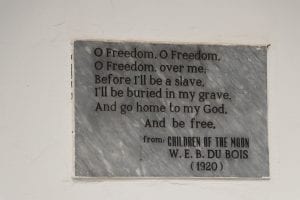
In 1961, Du Bois was invited by President Kwame Nkrumah to live in Ghana to write the Encyclopedia Africana, but only finished the first three chapters. In 1961 on the eve of the civil rights march in Washington, he died in his sleep at the age of 95 in his house, as a Ghanaian. DuBois’ work is still very important today. He thought a lot about the past and used it as a guide to move forward and not move backwards.
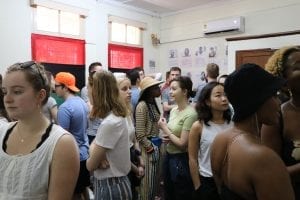
After we got back on the bus, Professor Abdulai Iddrisu lectured about what we had seen at the center and asked us to consider the similarities between Du Bois idea of and processes in the struggle in the past and Nkrumah’s idea of Forward Ever and Backward Never. He had said that they went hand in hand in that while President Nkrumah had wanted everyone to move on from the racial segregation in colonial Ghana, W.E.B DuBois wanted everyone to celebrate the achievements of the leaders in the past and use their achievements to guide us in shaping the future.
We also discussed the importance of chiefs in Ghanaian culture and politics. This topic was inspired by the many stools present in Dubois’ burial ground given by chiefs.
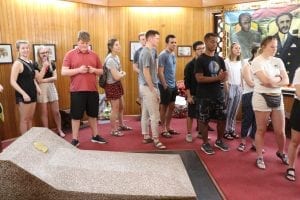
We discussed how during colonial the Indirect Rule system that the British used to rule over their colonies could only succeed where the people had established political institutions, and chefs were central to this endeavor. After the independence of Ghana the role of chiefs changed and secular educated tended to play a more important role in governance.
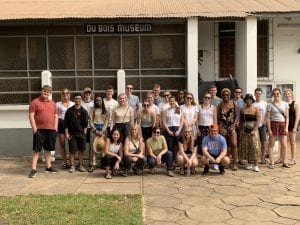
We then started our long journey to Kumasi. We enjoyed watching the cityscape of Accra turn more into remote farmlands. Many of us fell asleep on the ride while others continued to enjoy the scenary. Halfway through, we stopped for some ice cream (which froze our hands) and felt the temperature drastically rise and the air become more dry unlike Accra.
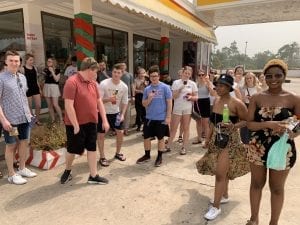
We got back on the bus and continued on our way to Kumasi. We entered Kumasi, which used to be the slave capital run by the Asante. We drove through their city center market square and it took us at least an hour to drive only three miles because of the crowd of people. We were all fascinated to see how different and how busy the city life in Kumasi compared to life in Northfield. We finally arrived at Ike’s Cafe & Grill and we had a leisurely dinner and reflected about things we had seen throughout the day.
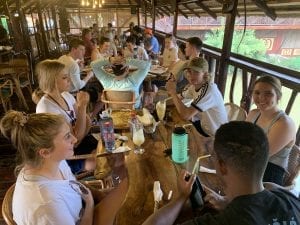
We got some fancy drinks (smoothies, not alcohol don’t worry Abdulai) and indulged on pizza, sandwiches, lobster, etc.
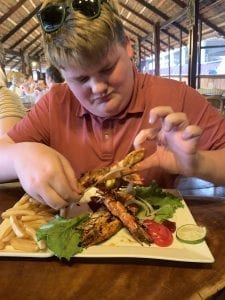
Then we proceeded to go to the hostel to relax and reflect on our day. We were split between hostels, The Comfort Place and the Quiet Place (not the one from the horror movie). We are looking forward to what the new day has in store for us.
Caleigh, Gugu, Seth and Anna.
